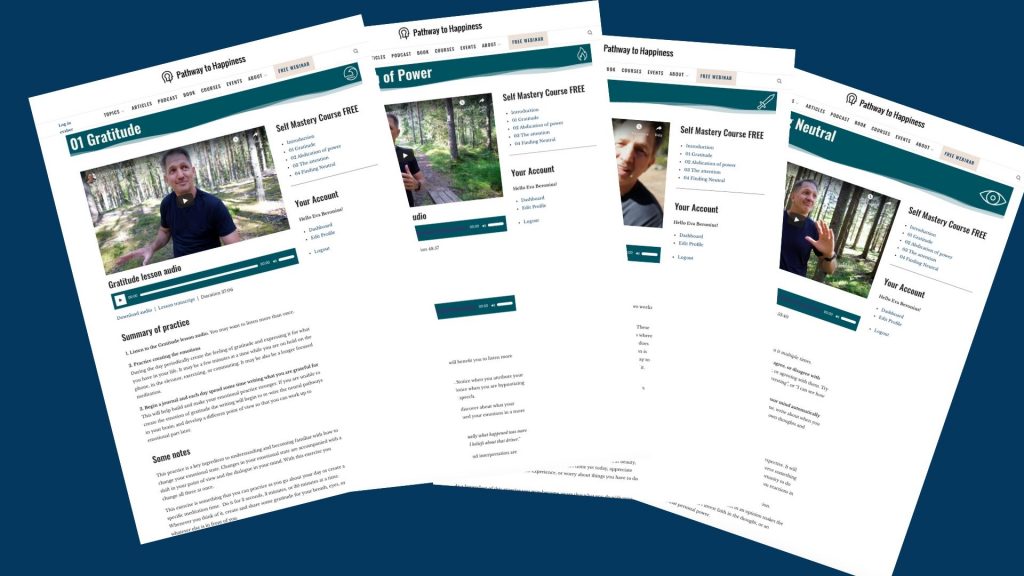Self Awareness
The definition of self awareness is having a clear perception of your personality, including strengths, weaknesses, thoughts, beliefs, motivation, and emotions. Self Awareness allows you to understand other people, how they perceive you, your attitude and your responses to them in the moment. We might quickly assume that we are self aware, but it isn’t a skill measured in binary of “got it” or “don’t got it” (on/off) options. It is helpful to have a range of scale for awareness. If you have ever been in an auto accident you may have experienced everything happening in slow motion and noticed details of your thought process and the event. This is a state of heightened awareness. With practice we can learn to engage these types of heightened states and see new opportunities for choices and interpretations in our thoughts, emotions, and conversations. Having awareness creates the opportunity to make changes in behavior and beliefs.
A simple quick assessment of self awareness might be:
Basic – Aware of your thoughts while you have them.
Medium – Aware of the thoughts and emotions you have about your thoughts in the moment.
High – Able to put attention on your emotions, and physical state in a way to relax and thereby change your thought process in the moment.
Maybe you are at high level of self awareness in a relaxed state, but in a stressed state you might shift to a medium or basic level of self awareness. Even where we are on the spectrum changes depending on other factors during the day.
Why Develop Self Awareness?
As you develop self awareness you are able to make changes in the thoughts and interpretations you make in your mind. Changing the interpretations in your mind allows you to change your emotions. Self awareness is one of the attributes of Emotional Intelligence and an important factor in achieving success. Studies have shown a high degree of self awareness in successful CEO’s.
Self awareness is the first step in creating what you want and mastering your life. Where you focus your attention, your emotions, reactions, personality and behavior determine where you go in life. Having self awareness allows you to see where your thoughts and emotions are taking you. It also allows you to take control of your emotions, behavior, and personality so you can make changes you want without your ego getting in the way. Until you are aware in the moment of your thoughts, emotions, words, and behavior, you will have difficulty making changes in the direction of your life.
Self Awareness in Relationships
Relationships are easy until there is emotional turmoil. This is the same whether you are at work or in your personal life. When you can change the interpretation in your mind of what you think you can change your emotions and shift the emotional quality of your relationships. When you can change the emotions in your relationships you open up entirely new possibilities in your life.
Having a clear understanding of your thought and, behavior patterns helps you understand other people. This ability to empathize facilitates better personal and professional relationships.
Developing Self Awareness
Self awareness is developed through practices in focusing your attention on the details of your personality and behavior. It isn’t learned from reading a book. When you read a book you are focusing your attention on the conceptual ideas in the book. You can develop an intellectual understanding of the ideas of self awareness from a book, but this is not the same. With your attention in a book you are practicing not paying attention to your own behavior, emotions and personality.
Think of learning to be mindful and self aware as learning to dance. When learning to dance we have to pay attention to how and where our feet move, our hands and body motion, what our partner is doing, music, beat, floor space, and other dancers. Dancing isn’t learned from books and Self Awareness isn’t either. A dancer needs awareness of their body movements. Self awareness is what you develop when you pay attention to your expressions of thought, emotions, and behavior. In my years of study and working with clients I have discovered many useful techniques that accelerate this learning. I have incorporated these techniques into the Self Mastery Course. The first four sessions are available free.
When You’re Ready to Work on Your Self Awareness
My goal is not to tell you what to believe, how you should think, or what you should do. I am sharing with people exercises in raising their self awareness. When you become more self aware you instinctively begin to see aspects of your personality and behavior that you didn’t notice before.
I offer four completely free lessons in discovering your own self awareness. You get access to these video lessons here.
If you have an emotional reaction of anger or frustration, you notice many of the thoughts and small triggers that build up towards those emotions. You also notice moments when you can change the interpretations in your mind, or not believe what you are thinking. In this heightened awareness you instinctively make better choices in your thought process long before an emotional reaction or destructive behavior.
Making changes in your behavior is much easier to do when you catch them early in the dynamic, before the momentum of thought and emotion has gathered steam. The changes in your mind, and behavior become simple and easy steps when you develop self awareness. See the Self Mastery Course for the step by step process and exercises. You can also learn about these practices from the book MindWorks: A practical guide for changing Thoughts, Beliefs and Emotional Reactions.
To increase your awareness the first step is to practice Becoming the Observer.
4 FREE Self Mastery exercises

Practical exercises for:
⇒ quiet the chatter in your head
⇒ reduce negative thinking
⇒ overcome emotional reactions
⇒ create greater happiness
